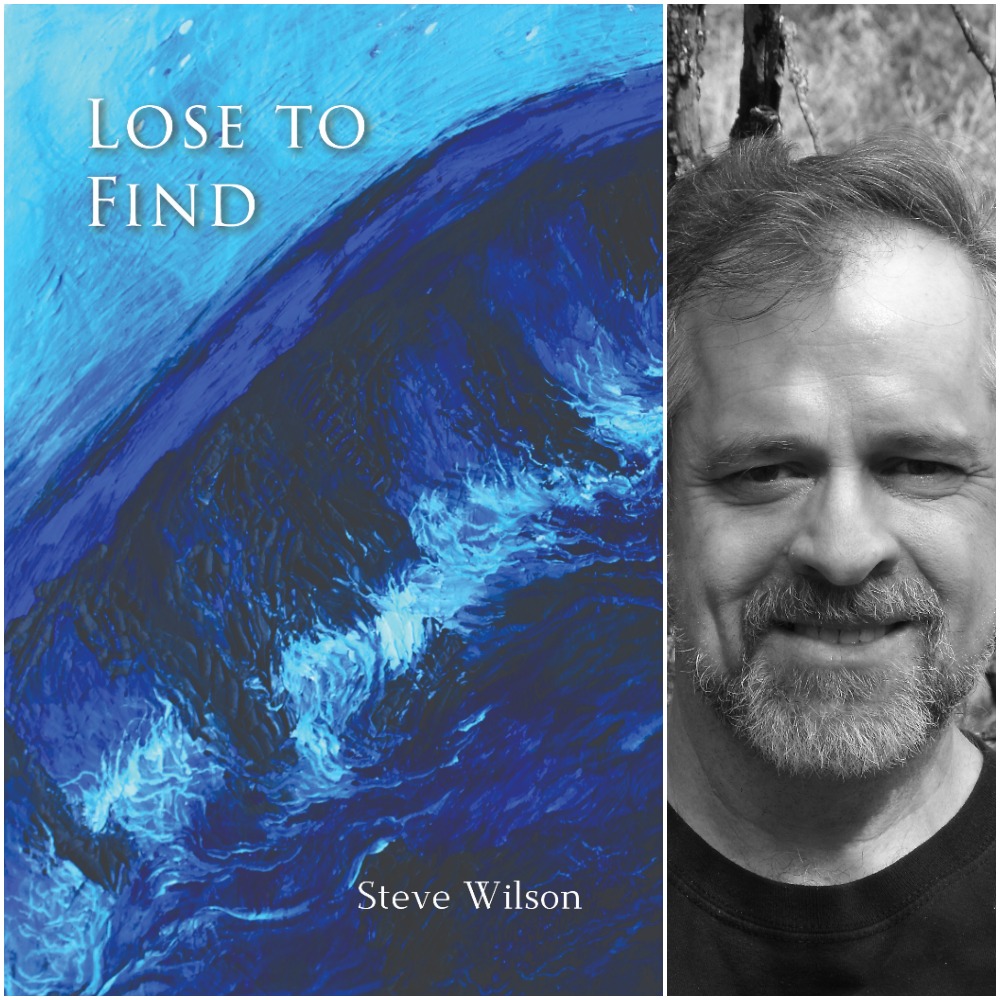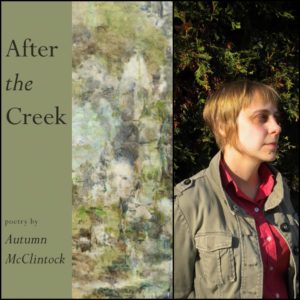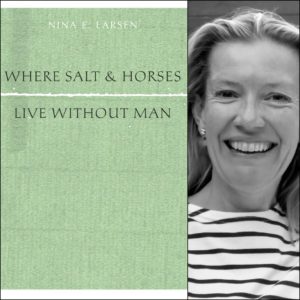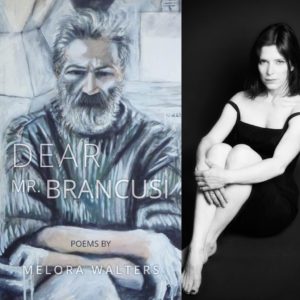Lose to Find by Steve Wilson
$14.99
The poems of Lose to Find are above all a call to clarity, to pure imagistic witness in forms both familiar and experimental, from the brilliant evocation of how “Nightjars dive into an echo” to the lonely & lovely call-and-response of found texts (“meet me at the schoolyard, like before” a lover’s typed voice calls; “under moonglow and want” the loved taps back). You read these poems and you come out the other side chastened and charmed by a sense both of longing and of profound gratitude.
–John Blair, author of Playful Song Called Beautiful (Univ. of Iowa Press), winner of the 2016 Iowa Poetry Prize.
These are poems in search of light – light that transforms, sparks, and lifts, and in which selves are reflected, faces revealed as open or closed. But along the way there is a persistent heaviness. Silence, darkness, and the “sprawl and everywhere-ness” of the “unmade” threaten to choke the sparse, compressed utterance before the light can break through. In this, as in all good poetry, Steve Wilson’s poems enact what they describe, risking everything to find light and love even in the face of loss.
–David Hadbawnik is a poet and translator whose last book was Virgil’s Aeneid, books 1-6 (Shearsman Books, 2015). Holy Sonnets to Orpheus and Other Poems is forthcoming from Delete Press.






Steve (verified owner) –
Recent poems by Steve Wilson are out or forthcoming in such journals as Beloit Poetry Journal, Borderlands, Bluestem, Rio Grande Review, Cimarron Review, Commonweal, Poem, Georgetown Review, North American Review, America, The Christian Science Monitor, Blue Unicorn, New Orleans Review, San Pedro River Review, The Christian Century, New American Writing, Isotope: A Journal of Literary Nature and Science Writing, Midwest Quarterly, The Rio Grande Review, and New Letters; as well as in a number of anthologies, including O Taste and See: Food Poems (Bottom Dog Press), Visiting Frost: Poems Inspired by Robert Frost (University of Iowa), Stories from Where We Live: The Gulf Coast (Milkweed Editions), Like Thunder: Poets Respond to Violence in America (University of Iowa), What Have You Lost? (Greenwillow), American Diaspora: Poetry of Displacement (University of Iowa), An Introduction to the Prose Poem (Firewheel Editions), Beloved on the Earth: 150 Poems of Grief and Gratitude (Holy Cow! Press), Classifieds: An Anthology of Prose Poems (Equinox), Improbable Worlds: An Anthology of Texas and Louisiana Poets (Mutabilis) and Going Down Grand: Poetry of the Grand Canyon (Lithic). His books include Allegory Dance, The Singapore Express and The Lost Seventh.
Vanessa –
As the title of the collection indicates, these poems search. These poems examine changes and shifts–ranging from the personal to national to global concerns. The speaker simultaneously faces loss and discovery (“By the lowed light of the storm– / dusk at midday–I meet myself / in old poems. I’d forgotten him. / Where did this mind go?” from “Hours: hinges”).
I get the feeling that if Wilson weren’t a poet, he’d be a visual artist: many of his poems have careful attention to where and how each word is placed on the page. Words zig and zag in homage to the organic scenes and movements they are describing. The reader can tell he puts thought into his word selections–important to do in all poetry, but especially in short-lined poems such as these. There is even the occasional–gasp!–one-word line, a lot of pressure to place on a single word, but the word in such cases always holds strong.
Another thing to admire in Wilson’s work is his attention to punctuation–dashes, slashes, colons, parentheses, asterisks, etc.–they demand as much weight as the words do.
In the three “Cells” poems, consisting of what are presented as text messages, the bolded anaphora of “I texted” and “You texted” work well in contrast to the italicized, lineated texts. The texts are not presented as dialogue, but rather all of what the “I” has said on one side, and all of what the “You” has said on the other side. This works to highlight the pause, mental space, and/or physical distances between these two entities, as they also call out to each other in their own wanderings.
One of my favorites is the last poem, “In My Dreams I Am Whole”–there is an underlying hurt about the absence of something, while also hopeful, wanting, journeying: “In my dreams I am whole / and ready, heading out–eagerness / in the air itself. Even at stop signs / all motion and movement.”
Do yourself a favor: obtain this book and read it when the hour is past midnight and you’re able to read these poems slowly. Hold each word in a night when all you can hear is the wind outside. In these poems there is pain, but also the balance of well-crafted hope, yielding an equation of empathy and survival through wisdom.